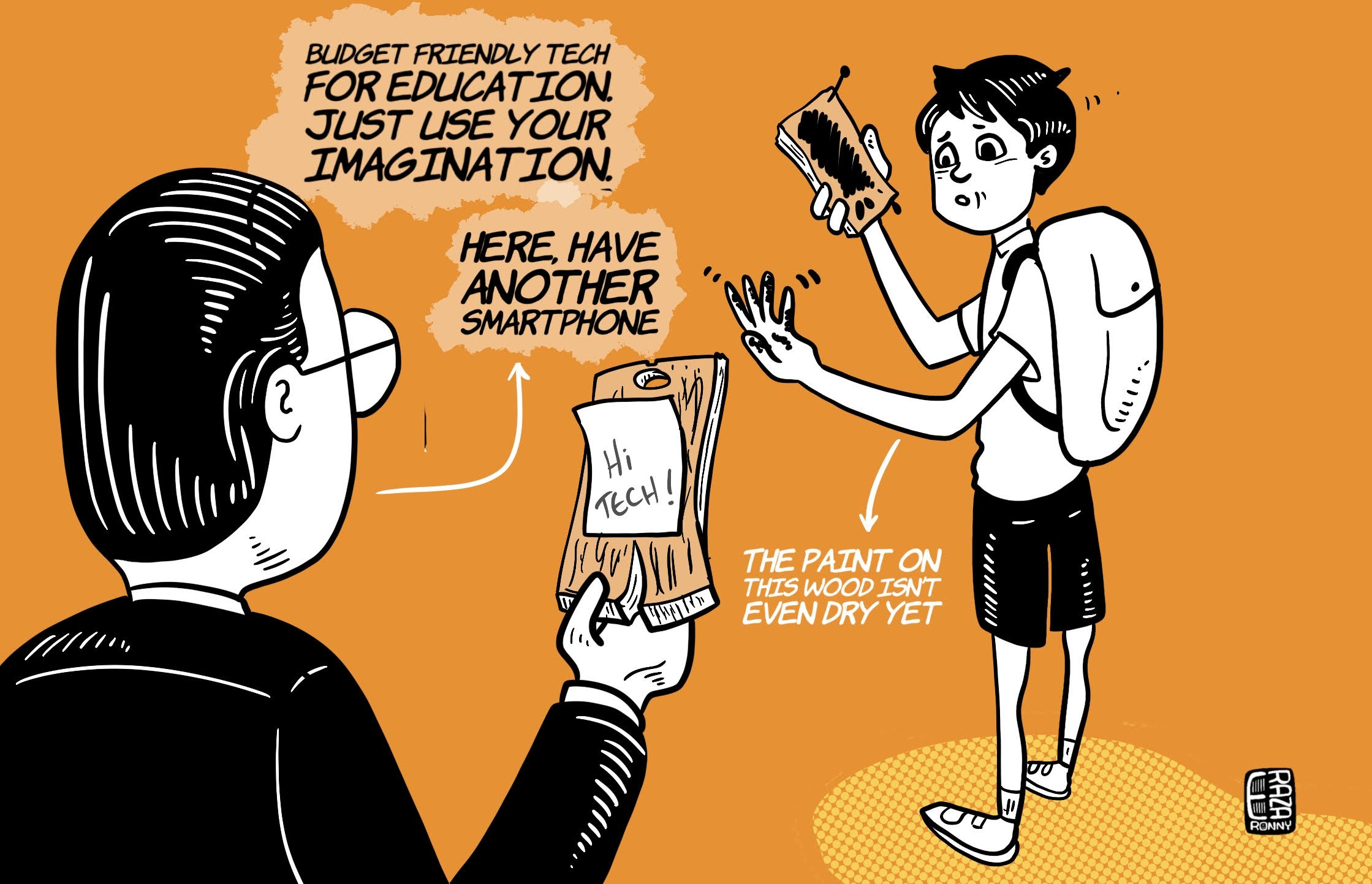Bangladesh must bridge the adult and digital learning gap

Kerala, the southern Indian state hailed as the most literate in the country, claimed another historic milestone in August by achieving total digital literacy, first in India.
Under the "Digi Kerala" initiative, more than twenty lakh people previously identified as digitally illiterate were trained to use smartphones for voice and video calls, access government services online, conduct internet banking, and engage with social media platforms.
This accomplishment is not just a technological feat—it is a social transformation. In today's world, digital literacy is no longer a luxury or an add-on; it is a prerequisite for meaningful participation in the economy, governance, and society.
This year, International Literacy Day is being celebrated under the theme of "Promoting literacy in the digital era." According to UNESCO, digitalisation has been changing how we learn, live, work and socialise, in both positive and negative ways, depending on how we engage. The digital shift also risks creating double marginalisation—exclusion not only from traditional education but also from the benefits of the digital age. Literacy in the digital era enables people to access, understand, evaluate, create, communicate and engage with digital content safely and appropriately.
In this regard, Bangladesh presents a sobering picture. Despite some progress in basic literacy, the country remains far behind in digital inclusion. According to the Bangladesh Bureau of Statistics, 75.6 percent of people aged 15 and above are literate. However, digital access tells a different story.
In 2023, only 45.7 percent of the population aged five and above had access to the internet. The rural-urban divide in this case is evident: 42.1 percent of rural residents compared to 57.1 percent in urban areas, had internet access. Gender disparities persist as well, with 51.9 percent of males using the internet compared to only 39.7 percent of females. Mobile financial service usage stood at 47.8 percent.
While many parts of the world are making significant strides toward digital literacy, our Bureau of Non-Formal Education (BNFE) has yet to initiate any meaningful programme to equip the population with digital skills. The bureau tasked with transforming out-of-school, dropout and educationally deprived populations into skilled human resources through adult education and functional literacy has largely failed to fulfil its mandate.
BNFE's initiatives have primarily focused on basic literacy and numeracy. More recently, it has incorporated livelihood skills, acknowledging that literacy alone cannot sustainably reduce poverty. However, these efforts have not succeeded in eliminating illiteracy due to a fragmented, piecemeal approach and political rhetoric that lacks follow-through.
Literacy can be advanced through two primary avenues: formal education and targeted adult literacy initiatives. Bangladesh has consistently prioritised formal education, sidelining adult literacy. The primary school dropout rate, which had been declining steadily for 14 years, rose sharply in 2024, climbing to 16.25 percent from 13.15 percent in 2023. This imbalance, compounded by the lack of a comprehensive strategy, weak coordination among implementing agencies, and repeated planning failures, has left millions of citizens still unable to read and write.
BNFE's project cycle has been inconsistent. They launch one initiative and, upon finishing it, begin another, often with different target groups and approaches, without following up on the previous project. Most programmes rely heavily on theoretical instruction, instead of equipping beneficiaries with practical skills. As a result, many participants forget what they've learned over time.
Irregularities and mismanagement in previous projects eroded the trust of development partners, discouraging financial support. NGOs implement most of the programmes, raising concerns regarding the selection process, as media reports highlight widespread irregularities.
In 2003, the BNP-led government discontinued a major literacy project over allegations of corruption. It dismantled the Directorate of Non-Formal Education and restructured it into BNFE in 2005. During its tenure, the BNP government did not initiate any major literacy-focused programmes under BNFE. When the AL-led government assumed office in 2009, it proposed two Tk 3,000-crore literacy projects and sought donor support. However, donors declined to fund them, leading the government to shelve the plans. The AL government then launched a Tk 453-crore project using domestic funds to make 45 lakh people aged 15–45 literate after failing to get assistance from a development partner in 2014. Notably, no significant BNFE-led project was undertaken until 2014 despite the pledge to eradicate illiteracy by that year.
To understand why well-planned programmes and effective execution are essential, we need to look at Kerala's success. In the 1990s, volunteers went door-to-door during the Total Literacy Campaign, encouraging adults to attend night classes. Public ceremonies celebrated newly literate citizens, making literacy a source of collective pride. Kerala continues to prioritise literacy and leads India with a literacy rate above 92 percent. On the other hand, Sri Lanka's literacy achievements stem from its longstanding commitment to free education, equitable access, and comprehensive reforms in curriculum, teacher training, and infrastructure.
To break free from the cycle of illiteracy and digital exclusion, Bangladesh must launch a nationwide literacy campaign targeting rural and adult populations. Functional and digital literacy should be integrated into all non-formal education programmes. Volunteers, local governments, and NGOs must be mobilised in a coordinated and accountable effort. In the digital age, literacy is not merely a skill—it is a right, a tool for empowerment, and a cornerstone of national development.
Bangladesh must act decisively or risk leaving millions behind.
Mohiuddin Alamgir is a journalist at The Daily Star.
Views expressed in this article are the author's own.
Follow The Daily Star Opinion on Facebook for the latest opinions, commentaries and analyses by experts and professionals. To contribute your article or letter to The Daily Star Opinion, see our guidelines for submission.




 For all latest news, follow The Daily Star's Google News channel.
For all latest news, follow The Daily Star's Google News channel. 
Comments